Investigating the WHO Director-General
It seems that document #27 from the 77th World Health Assembly is yet another very good reason to NOT trust the World Health Organization.
On Thursday, May 30, 2024, Committee B of the 77th World Health Assembly will be asked to consider NEW procedures to handle potential investigations into allegations against the WHO Director-General.
The NEW Procedures will NOT increase transparency and they will NOT reduce corruption.
I believe that these NEW procedures are designed to whitewash and hide any accusations in order to protect the WHO Director-General from future investigations.
Document (WHA77/27) was released on May 21, 2024, in violation of Rule 14 of the World Health Assembly Rules of Procedure, which states that all documents must be submitted at least 6 weeks in advance of the World Health Assembly.
https://apps.who.int/gb/ebwha/pdf_files/WHA77/A77_27-en.pdf
CLICK HERE to also download the Director-General’s contract.
QUESTIONS:
1. Are these NEW procedures designed to facilitate future investigations, or are these NEW procedures designed to bury and/or whitewash investigations into accusations of wrongdoing by the WHO Director-General?
2. Is the WHO trying to squash future investigations by implementing a convoluted, bureaucratic process designed to make it more difficult to investigate the WHO Director-General, while pretending to do the opposite?
3. Are these NEW procedures for “handling” future investigations designed to increase the level of “red tape” in order to facilitate the cover-up of allegations against the WHO Director-General?
4. Is Section 1.4 designed to coerce employees to remain silent?
1.4. Any false allegation of misconduct against the Director-General submitted knowingly and intentionally by WHO personnel shall be considered misconduct and addressed as such according to the WHO Staff Regulations and Staff Rules.
5. The World Health Assembly (WHA) votes the Director-General into office. The World Health Assembly currently also has the authority to vote the Director-General out of office.
EXISTING WHA AUTHORITY:
“The Health Assembly shall have the right, on the proposal of the Board and after hearing the Director-General and subject to at least six months’ notice in writing, to terminate this Contract for reasons of exceptional gravity likely to prejudice the interests of the Organization”.
Are these NEW procedures designed to circumvent the authority of the World Health Assembly to terminate the Director-General’s contract?
6. Are these new procedures designed to investigate and establish the truth or are they designed to hide corruption and malfeasance in an attempt to protect the WHO’s “reputation”?
13. These procedures should not be interpreted as giving special leniency or preferential treatment to a Director-General, but recognize the unique gravity of alleged misconduct when at the Director-General level, and the disproportionate and enduring operational and reputational effects on any organization of undertaking a full investigation into its executive head, irrespective of the result.
Report of the Internal Auditor
62. Although the number of allegations rose across nearly all thematic areas, most reports received relate to abusive conduct, including harassment, abuse of authority and discrimination (223) followed by sexual misconduct, including sexual exploitation and abuse and sexual harassment (172), and financial misconduct, including fraud, corruption and recruitment irregularities (168). Allegations of retaliation, in particular, rose exponentially, from 22 allegations received in 2022 to 50 in 2023 (see Table 4).
page 20
Report of the Internal Auditor
https://apps.who.int/gb/ebwha/pdf_files/WHA77/A77_23-en.pdf
EXCERPTS FROM DOCUMENT WHA77/27:
And so are the attempts by the WHO to protect their Director-General from future investigations.
Please pay special attention to the text that is in bold italics below.
The current leads for Member State-led governance reform, Mr José Acacio of Australia and Mr Ding Yang of China, submit this report as an introduction to a proposed process for handling and investigating potential allegations against WHO Directors-General (Appendix 1), for consideration by the Seventy-seventh World Health Assembly
1. The WHO Secretariat has the honour to transmit to the Seventy-seventh World Health Assembly the report by the leads for Member State-led governance reform on a process for handling and investigating potential allegations against WHO Directors-General (Annex), which has been prepared following informal consultations in line with decision EB154(5) (2024). [EB150/5 annex]
ACTION BY THE HEALTH ASSEMBLY
2. The Health Assembly is invited to note the report and to consider the draft decision proposed by the Member State leads (Appendix 2).
DRAFT DECISION
The Seventy-seventh World Health Assembly, having considered the report by the leads for Member State-led governance reform on a process for handling and investigating potential allegations against WHO Directors-General,
Decided:
1. to adopt the process for handling and investigating allegations against WHO Directors-General proposed in the report.
2. to request the WHO Secretariat to put in place measures to give effect to these procedures and to aid their implementation, including:
(a) securing Memoranda of Understanding with the internal oversight offices of United Nations entities, such as the internal investigation functions of other United Nations specialized agencies or the United Nations Office of Internal Oversight Services, to serve as independent external investigative entities;
(b) developing internal tools, procedures, and processes, as necessary following from chapter D, specific provisions of the procedures for handling and investigating allegations against a Director-General;
(c) to report on progress to the Executive Board at its 156th session through the forty-first meeting of the Programme, Budget and Administration Committee;
3. to request the Executive Board to include a reference to these procedures as relevant, in future contracts of WHO Directors-General, to be subsequently approved by the Health Assembly as per Rules 109 and 112 of the Rules of Procedure of the World Health Assembly.
Internal Oversight Services (IOS)
Independent Expert Oversight Advisory Committee (IEOAC)
A. Current WHO Legal Framework
1. The current WHO process for handling allegations against its Director-General relies mainly on the conditions and provisions set out in the Director-General’s contract. Paragraph 7 of the contract provides that “The Health Assembly shall have the right, on the proposal of the Board and after hearing the Director-General and subject to at least six months’ notice in writing, to terminate this Contract for reasons of exceptional gravity likely to prejudice the interests of the Organization”.
2. Thus, the World Health Assembly has the authority to terminate the Director-General’s contract based on the single criterion set out in the contract, i.e., for reasons of exceptional gravity likely to prejudice the interests of the Organization.
3. While the contract does not set out a process for arriving at such a decision, the Director-General is the chief administrative and technical officer of WHO and also a staff member. S/he is subject to the Staff Regulations insofar as they may be applicable to him/her. In this regard, relevant jurisprudence (the International Labour Organization Administrative Tribunal, ILOAT) establishes that the right to due process extends to executive heads of organizations “following a procedure enabling the individual concerned to defend his or her case effectively before an independent and impartial body” (ILOAT Judgment 2232). In practice this means that in accordance with the WHO staff rules the executive head has a right to be informed of the charges against him/her and be provided with the opportunity to reply to the charges; it also means that any decision to terminate the contract must be taken on valid grounds.
4. The Secretariat will follow relevant best practices to ensure that it manages possible conflicts of interest or retaliation involving roles of any involved office or person that supports the process, including as concerns the Director-General. Moreover, pursuant to the terms of reference of the Independent Expert Oversight and Advisory Committee (IEOAC), the IEOAC’s role is to provide independent advice and oversight.
5. The procedures set out here give due regard to Director-Generals’ obligations under Article 37 of the Constitution of the World Health Organization, not to seek or receive instructions from any government or from any authority external to the Organization in the performance of their duties; and to refrain from any action that might reflect on their position as an international officer. These procedures recognize the duties of the Directors-General under the WHO Code of Ethics, the International Civil Service Commission’s Standards of Conduct for the International Civil Service as well as the rules and procedures of WHO’s governing bodies.
https://apps.who.int/gb/bd/pdf_files/BD_49th-en.pdf
B. Proposed process
Section 1: Reporting suspected misconduct
1.1. Any person, regardless of relationship to WHO, may report allegations of potential misconduct concerning the Director-General.
1.2. Reports can be made through the WHO integrity hotline or the WHO Office of Internal Oversight Services (IOS) . Individuals may also report suspected misconduct directly to the Chairs, respectively, of the IEOAC or Executive Board. Additionally, any individual with a duty to report misconduct, including as required by WHO’s regulatory and policy frameworks, shall report any suspected wrongdoing as required.
1.3. Without creating disincentives for any person reporting an allegation, IOS should, to the extent possible, ensure that reports of alleged misconduct contain information sufficient to allow for a proper intake assessment, including:
(a) a detailed description of the alleged misconduct;
(b) the time(s) and location(s) of the alleged misconduct;
(c) the names of any potential witnesses to the alleged misconduct; and
(d) all available supporting documentation.
1.4. Any false allegation of misconduct against the Director-General submitted knowingly and intentionally by WHO personnel shall be considered misconduct and addressed as such according to the WHO Staff Regulations and Staff Rules.
1.5. These procedures are designed to be consistent with the WHO Accountability Framework and any applicable policies and protocols for external information sharing and reporting allegations of misconduct. None of these procedures prevents any individual from reporting suspected illegal activity to relevant national authorities, including law enforcement agencies. Such reports will not limit the scope and effect of any investigations carried out under these procedures.
1.6. If referral to a national authority is recommended by either the IEOAC or the external investigative entity, the WHO Legal Counsel shall consider the recommendation and determine whether referral is appropriate. If the case is referred to a national authority, the Legal Counsel shall inform the respective Chairs of the IEOAC and/or the Executive Board, taking into account that this information is strictly confidential in order to safeguard the integrity of the investigation and due process.
[REFERRAL TO A NATIONAL AUTHORITY SHOULD BE IMMEDIATE, SHOULD NOT BE KEPT CONFIDENTIAL AND SHOULD NOT BE SUBJECT TO REVIEW BY THE WHO’S LEGAL COUNSEL. -JR]
Section 2: Preliminary Review Phase I: Intake and prima facie determination
2.1. All allegations received via the intake channels provided in clause 1.2 shall be communicated immediately to IOS. IOS shall immediately communicate all allegations it receives to the IEOAC Chair.
2.2. Director IOS will promptly log all allegations received and without delay conduct a prima facie determination to determine whether further analysis is merited.
2.3. If a prima facie determination from IOS finds the allegation, as presented, does not merit further analysis), IOS shall promptly close the case, report that determination to the IEOAC Chair, and notify the complainant of the decision to close the case.
2.4. The IEOAC Chair shall include in their routine reports to the Programme, Budget, and Administration Committee a statistical summary only on cases that have been closed, including: the total number of allegations received; the number of allegations closed at each stage; and the type of misconduct alleged. Such reporting should avoid any premature notification to the implementation of the process as per clauses 3.7, 3.9 or 4.2 below.
Section 3: Preliminary Review Phase II: Further analysis
3.1. Following a prima facie determination from IOS that indicates further analysis of the allegation is merited, IOS shall notify the Officers of the Executive Board, referred to as its Bureau (Chair, Vice Chairs and Rapporteur) and the IEOAC Chair and transmit the allegation, along with any supporting documentation and IOS’s prima facie determination rationale, to an external investigative entity drawn from a pool of external investigative entities as provided for in chapter C below, for further analysis.
3.2. Selecting from the pool of external investigative entities. The external investigative entity chosen for engagement to work on a given allegation should be most appropriate to address the nature of the alleged misconduct at the time of the allegation. IOS shall identify a single entity for engagement from the pool using the following cascading criteria (assessed as at the time of the allegation):
(a) Essential. All of these must be satisfied:
(i) The entity selected must declare they have sufficient capacity to undertake and complete an investigation of misconduct against a WHO Director-General;
(ii) The entity selected must declare that it continues to have no real or perceived conflict of interest by engaging in an investigation of the WHO Director-General or WHO as an organization (previously assessed at the time the entity was added to the pool);
(iii) The head of the entity must not themselves be under investigation; and
(iv) WHO must not be involved in any investigation of the executive head of the entity’s agency.
(b) Desirable. If more than one entity from the pool satisfies the essential criteria, those entities should then be prioritized according to which satisfies the greatest number of the following desirable criteria:
(i) The entity, in the declared view of the entity’s head, has personnel with specialist knowledge relating to the kind of misconduct alleged (e.g. sexual exploitation, abuse and harassment).
(ii) The entity, in the declared view of the entity’s head, has personnel whose investigative skills are particularly relevant to this kind of misconduct.
(iii) The entity, in the declared view of the entity’s head, has personnel with experience in conducting investigations into this kind of misconduct.
(iv) The entity is not conducting investigations into the executive heads of any other United Nations entity.
(v) The head of the external investigative entity (by their own declaration) has not worked for WHO during the incumbent director-general’s term or for that individual in any other capacity.
(c) If prioritization by applying the above criteria does not result in a single preferred external investigative entity (that is, there is more than one optimal candidate), an entity shall be selected at random from those which satisfy all the essential criteria as well as the greatest number of desirable criteria.
3.3 If an external investigative entity is unable at any point to continue in its investigative duties, the entity should communicate same to the IEOAC Chair. If the IEOAC Chair is satisfied that a new investigative entity is required, s/he shall inform the Executive Board Bureau and advise IOS to make a new selection from the pool of external investigative entities in line with the procedure in clause 3.2. The initial entity would then transfer the case to the second external investigative entity, along with all relevant documentation.
3.4. Once IOS has identified an external investigative entity from the pool, and before that entity is engaged for service in relation to the allegation at hand, IOS shall provide the IEOAC Chair with a report outlining the steps taken to identify that entity for selection, including the details of which entities were eliminated and at which stage. If the IEOAC Chair is not satisfied that the criteria were applied as described in these procedures, the IEOAC Chair may request IOS to correct their application of the criteria. In this case, the IEOAC Chair would inform the Executive Board Bureau of the request immediately. The IEOAC Chair’s routine reporting to the Programme, Budget and Administration Committee shall also include a summary statistic of the number of times the IEOAC Chair made such a request to IOS, for cases already closed at the time such a report is prepared.
3.5. The external investigative entity selected shall exclusively be empowered to collect and assess all information it considers relevant to the allegation(s), including from entities related to WHO such as the IEOAC. Within a period of three calendar weeks, the entity shall conduct further analysis to determine whether a full investigation is warranted. If the entity concludes that it has not been able to collect sufficient information within the allocated period, it shall inform the IEOAC that it requires further time, nominating an extension period up to three calendar weeks. The IEOAC shall log each instance of an extension and, once the relevant case is closed or concluded, include each instance of an extension of the preliminary review period in routine reporting to the Programme, Budget and Administration Committee.
3.6. The factors for determining whether an allegation merits a full investigation shall be those existing factors provided for in the WHO Investigations Manual and any applicable provision of the Uniform Principles and Guidelines for Investigations or other provisions applicable for such purposes to investigations of WHO personnel.
3.7. Should the external investigative entity determine that an allegation does not merit a full investigation, the entity shall close the case and promptly report its findings directly to the IEOAC Chair for quality control and to assess the need for any WHO internal managerial actions. The IEOAC Chair would then transmit the outcome of the preliminary review to the Executive Board Bureau. Only in cases that are closed at this stage, the IEOAC Chair’s routine reporting to the Programme, Budget and Administration Committee shall include an itemized entry per case, separate to summary statistics, indicating: the date the allegation was made; the date the case was closed; and the type of misconduct alleged.
3.8. Notwithstanding the report requirements of clause 3.7, the external investigative entity shall maintain at all times strict confidentiality of the information it receives in connection with the preliminary review.
3.9. Should the external investigative entity determine that an allegation should proceed to a full investigation, having concluded that enough evidence exists to indicate that a serious, relevant and meaningful breach of policy or regulation has potentially occurred, the entity shall promptly report its findings directly to the IEOAC Chair. The IEOAC Chair shall then inform the Director-General of a pending investigation, ensuring to coordinate sequencing and timing with the investigative entity so as to avoid interfering with the investigation. Without delay, the IEOAC Chair will then inform the Executive Board Bureau that the matter will proceed to a full investigation. The Executive Board Bureau will, drawing (upon request) advice from the IEOAC Chair, decide whether to inform the full Executive Board, or all Member States, or none of these, taking careful consideration of implications on the conduct of the full investigation.
Section 4: Interim measures
4.1. If the preliminary review determines that a full investigation is warranted, the IEOAC Chair may, based upon the nature of the allegation(s), recommend to the Executive Board Bureau to apply certain interim measures, which could include placing the Director-General on administrative leave with or without pay or other actions, as considered necessary should the Director-General continue to exercise his/her functions. Factors to be considered in such cases may include:
(a) preservation of the integrity of the investigation;
(b) protection of staff, including the complainant or potential witnesses; or
(c) risk that the continued exercise of functions would have a significant negative impact or pose a serious real or perceived reputational risk to the Organization.
4.2. If the Executive Board Bureau decides, pursuant to clause 4.1 (optionally in consultation with the full Executive Board, if they consider such disclosure would not risk interference in the conduct of the full investigation), to apply any interim measures, one of the following two courses of action would apply in place of those at clause 3.9:
(a) If the interim measures do not include placing the Director-General on administrative leave, the Executive Board Chair shall inform the President of the Health Assembly and the Director-General of the pending investigation and such interim action. The Executive Board Bureau will, drawing (upon request) advice from the IEOAC Chair, decide whether to inform the full Executive Board, or all Member States, or none of these, taking careful consideration of implications on the conduct of the full investigation.
(b) If the interim measures include placing the Director-General on administrative leave, the Executive Board Chair shall inform the President of the Health Assembly and the Director-General of the pending investigation and such interim action, as well as consult Legal Counsel on the best means of informing all Member States.
Section 5: Full investigation
5.1. Within a given external investigative entity, any investigative officers involved in conducting preliminary review shall not be permitted to also conduct any subsequent full investigation. If an entity is unable to conduct a full investigation while observing this requirement, the process outlined at clause 3.3 shall be carried out to identify a replacement external investigative entity.
5.2. The external investigative entity shall have direct and prompt access to all records, documents, or other information under the control of the Organization, except those confidential records maintained by WHO’s internal independent oversight functions1 and the Office of the Legal Counsel obtained pursuant to the official duties of those functions, in line with their existing independence and confidentiality requirements.
5.3. The Director-General and any WHO personnel possessing information of interest to a duly authorized investigation shall be required to cooperate fully with any such requests of the external investigative entity. Failure to cooperate may be construed as misconduct.
5.4. Where applicable, documentation obtained from national authorities or outside organizations or individuals may form part of the investigative record.
5.5. The investigators will report their findings and conclusions directly to the IEOAC Chair to ensure independence, in line with the IEOAC’s oversight responsibilities.
Section 6: Investigation report – initial actions
6.1. The IEOAC Chair shall inform the Executive Board Bureau of the investigative findings and transmit the investigation report, along with the IEOAC Chair’s comments and advice. Upon receipt of the investigation report, the Executive Board Chair in consultation with the Executive Board Bureau, shall review the findings.
6.2. In cases where the investigation report determines that evidence does not substantiate any of the allegations, the Executive Board Chair following consultation with the Executive Board Bureau, shall close the case and inform the full Executive Board, the IEOAC Chair and the Director-General.
6.3. If the external investigative entity finds that the allegations are substantiated, at least in part, the Executive Board Chair will initiate the disciplinary process (i.e. development of a charge letter), notifying the Director-General of the charges consistent with Staff Rule 1130, and provide eight (8) calendar days for a written reply.
6.4. In the instance of either of clauses 6.2 or 6.3, the Secretariat shall inform all Member States that the full investigation has concluded, and the means by which Member States would be informed of further actions accordingly.
Section 7: Further process post-investigation
7.1. Following receipt of the reply to the charges, the Executive Board Chair will share the findings and the reply of the Director-General with the full Executive Board in a private session of the Board (either an ordinary or special session), no later than 30 calendar days after receipt of the Director-General’s reply to the charges. The IEOAC Chair can provide advice to the Executive Board regarding the findings when requested. The Executive Board may also request advice from the Secretariat via a special WHO team seconded for this purpose, as referred to in chapter D.
7.2. The Executive Board, following receipt of the investigation report and Director-General’s reply to the charges, shall recommend to the Health Assembly for its decision whether misconduct has been established and, if so, on the application of any disciplinary measures available under Section 11 of the WHO Staff Rules that are reasonably applicable to the position of Director-General, which may include termination of contract.
7.3. At an ordinary or special session of the World Health Assembly, the Health Assembly will provide an opportunity for the Director-General to reply to the charges in person in a private session (in addition to any written reply previously provided), as early as possible.
7.4. The Health Assembly shall decide, based upon the report of the full investigation, all supporting documentation and responses from the Director-General, any appropriate disciplinary and/or administrative measures to apply. The Health Assembly shall promptly formally inform the Director-General in writing of any such measures decided, with copies to the Executive Board Chair, the IEOAC Chair, WHO Deputy Director(s)-General and Chef de Cabinet.
7.5. The Health Assembly shall be empowered to seek recovery of any financial loss to the Organization, in line with Staff Rule 1112.
Section 8: Appeals
8.1. The Director-General may appeal a decision of the Health Assembly exclusively to the Administrative Tribunal of the International Labour Organization, in accordance with WHO Staff Rule 1240 and the provisions of the Statute of the Tribunal.
James Roguski
The old system is crumbling, and we must build its replacement quickly.
If you are fed up with the government, hospital, medical, pharmaceutical, media, industrial complex and would like to help build a holistic alternative to the WHO, then feel free to contact me directly anytime.
JamesRoguski.substack.com/about
JamesRoguski.substack.com/archive
310-619-3055
All content is free to all readers.
All support is deeply appreciated.




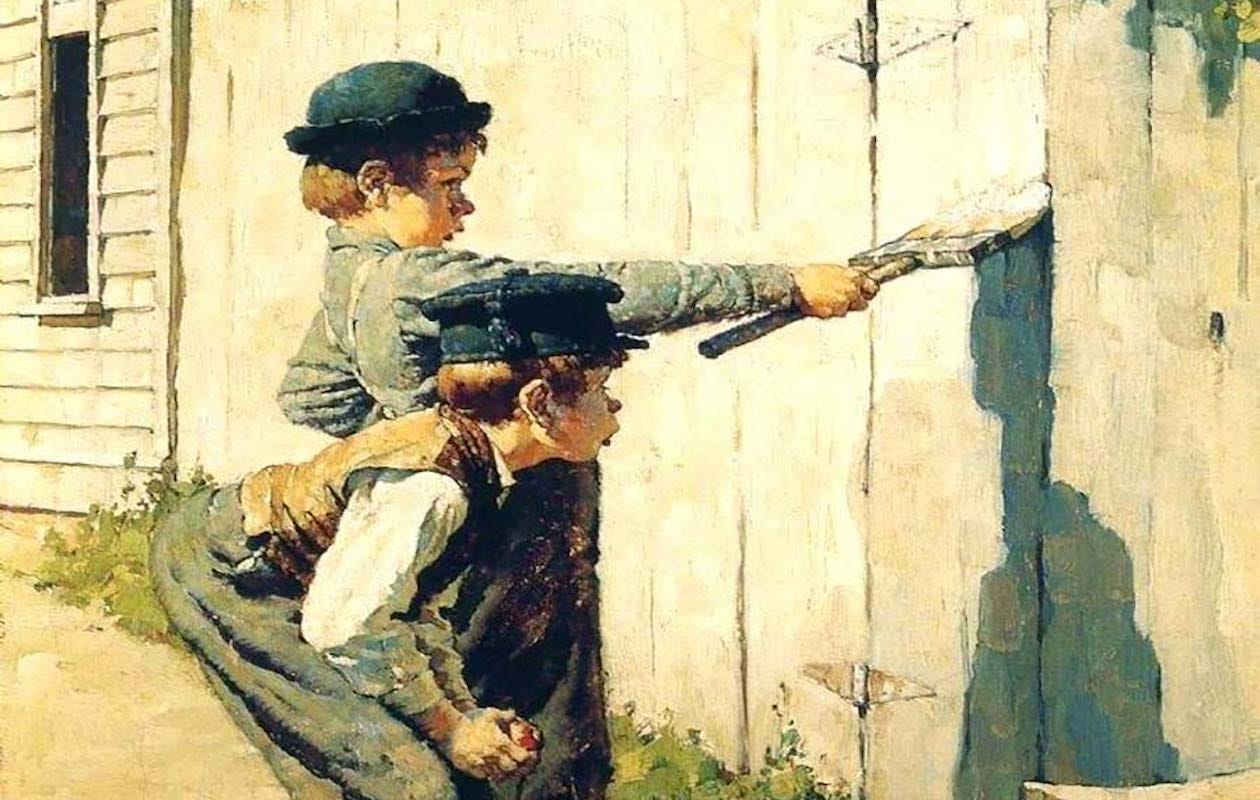

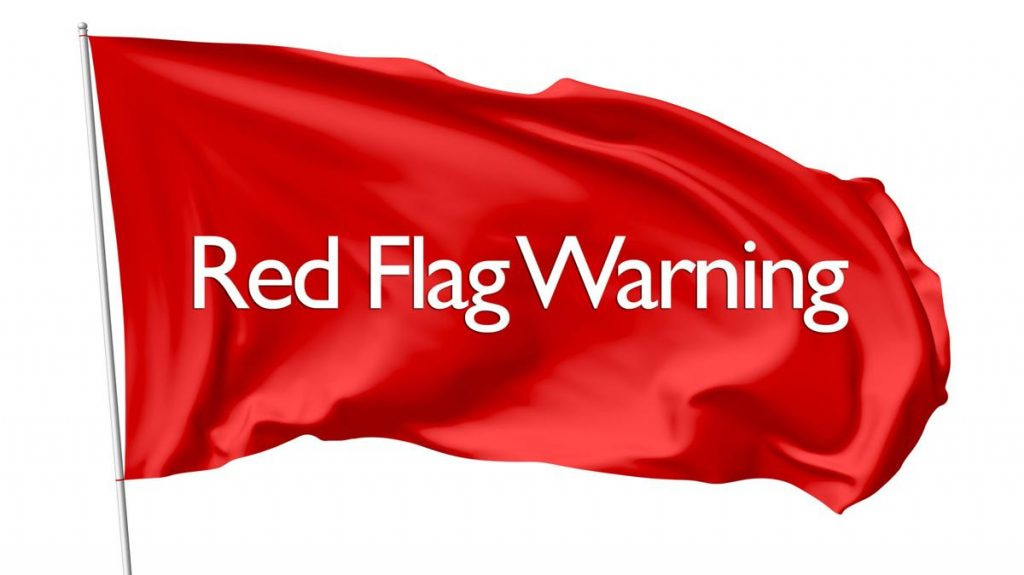


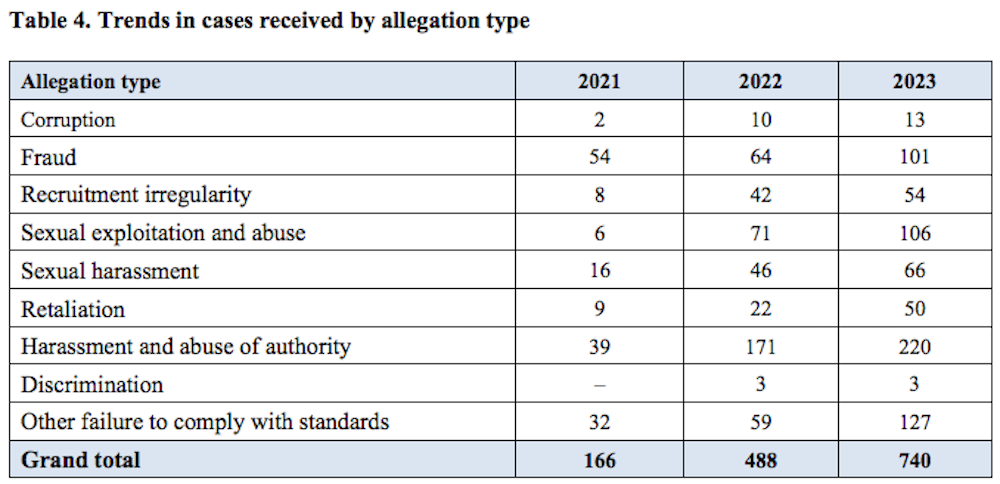
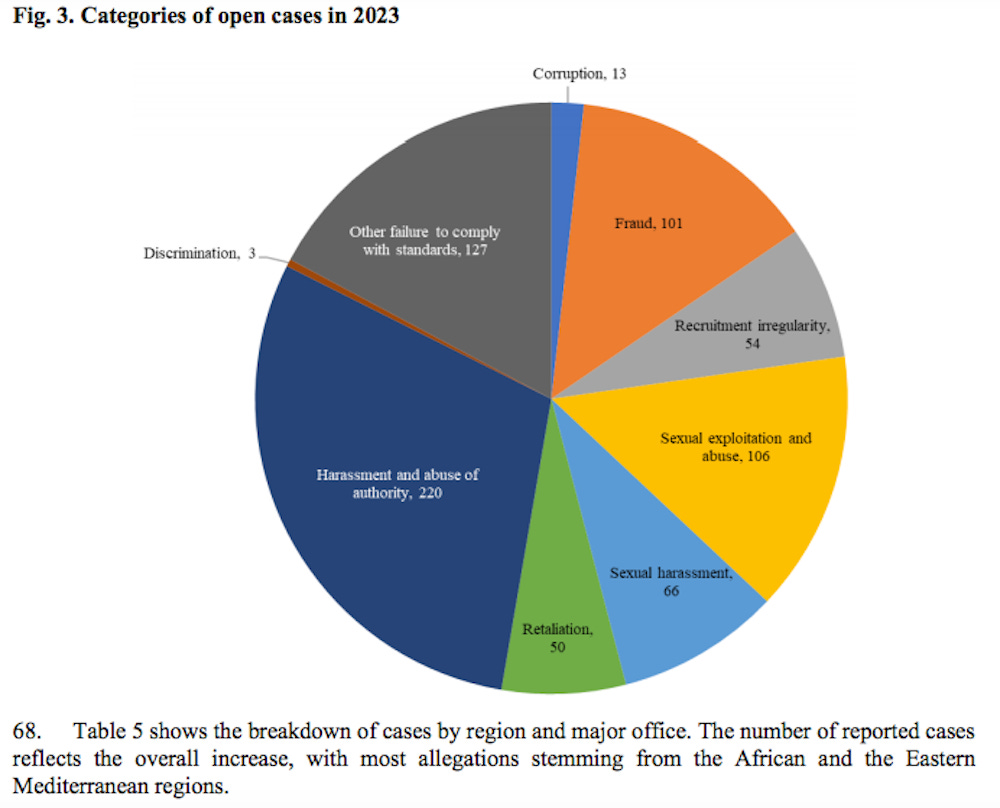

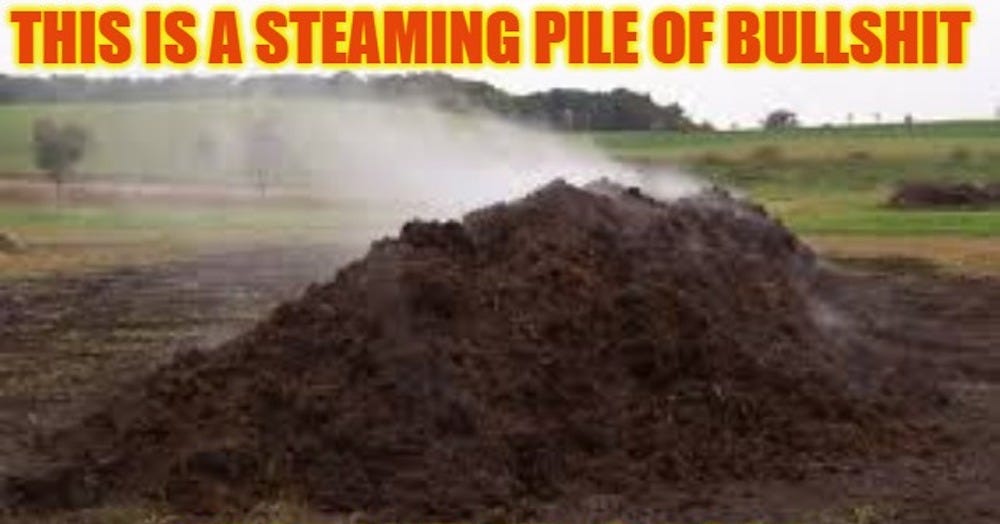


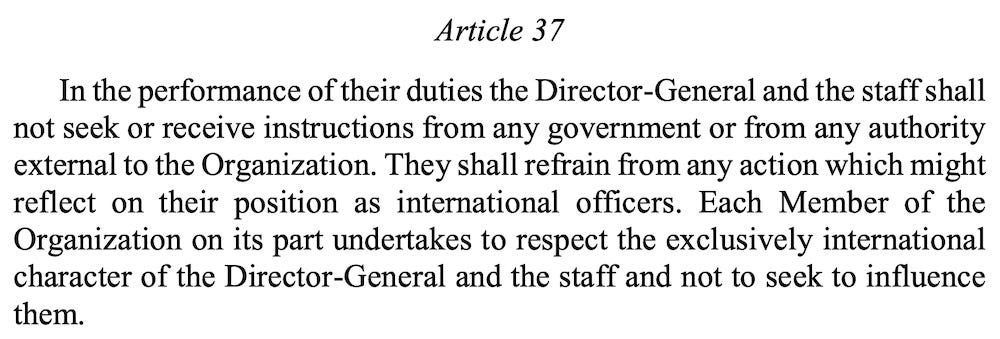
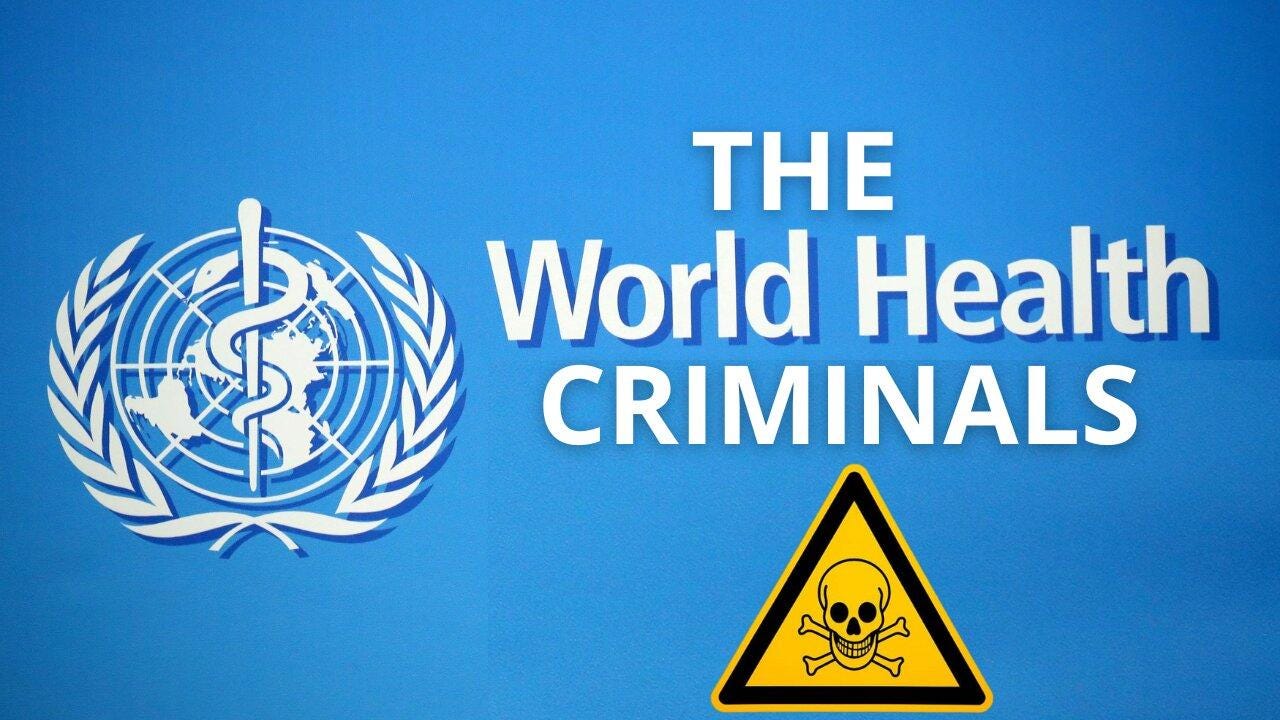

Well Tedros has been known as psychopathic 'terrorist' for a very long time and why he got the job of implementing the strategy to depopulate the world's people...true and not a conspiracy theory as history has recorded this. It shows though again that this ultimate genocide against humanity was planned, for who would elect a murderous terrorist to any job, but especially to be the boss of Global Healt...no sane person would do this and only an insane person would....read about this terrorist here...
The Frank Report - a long read, but well worth reading every word about this genocidal killer who is totally psychopathic and that's why he works for such people as the insane Bill Gates the ultimate psychopathic killer of all time..
The Ethiopian Terrorist in Charge of the World Health Organization — Dr. Tedros Adhanom
https://frankreport.com/2020/04/14/the-ethiopian-terrorist-in-charge-of-the-world-health-organization-dr-tedros-adhanom/
April 14, 2020
'for reasons of exceptional gravity likely to prejudice the interests of the Organization” - how about they look into David Steinman's complaint lodged at the International Criminal Court (ICC) in December 2020, that Tedros “was a crucial decision maker in relation to security service actions that included killing, arbitrarily detaining and torturing Ethiopians.” He goes on to accuse Tedros of supervising the “killing, and causing serious bodily and mental harm to, members of the Amhara, Konso, Oromo and Somali tribes with intent to destroy those tribes in whole or in part.” That sounds grave to me.